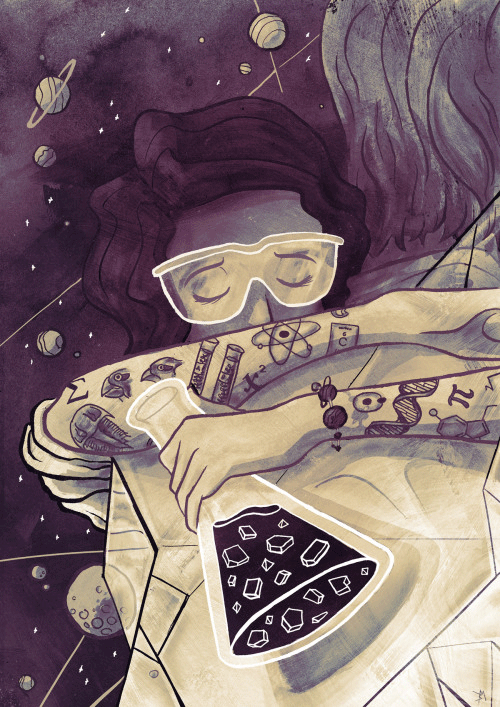Punk Science: marvelous microbiomes!
Welcome back my fellow punk scientists! It’s been some time since we’ve gone down the various rabbit holes that exist in the world of science and society. In our first three installments of this column, we covered some more socially minded topics that focused on cultural trends and inclusivity, but with a fresh start this fall, I thought I would make an effort to bring a little more science back into the Punk Science world, while also trying to maintain the flare for the unknown or the underrepresented.
This time, I would like to take a look at the field of Microbiology, specifically the work done by Dr. Karen Nelson, a renowned scientist in her field. Dr. Nelson’s claim to scientific fame comes from some research she did in 2006 in which she and her team published the large-scale paper on the human microbiome.
What’s a microbiome, you ask? Well, according to Merriam-Webster, a microbiome is “A community of microorganisms (such as bacteria, fungi, and viruses) that inhabit a particular environment and especially the collection of microorganisms living in or on the human body.”
Makes since, right? All those little entities like your gut bacteria or the organisms that live in your mouth, those are the little creatures that Dr. Nelson did her research on. The interesting part of this work, however, came in the ramifications of human microbiology and its effects on our bodies. For example, having a healthy digestive biome in your mouth and gut can influence the health of a person as they age, specifically when it comes to the functioning of their immune system.
In a 2019 study, Dr. Nelson and her team took 65 people and put them into two groups, one with relatively nominal health, and one with health issues ranging from cancer, to cardiovascular disease, to various neurodegenerative disorders. When the team examined the bacterial levels in the participants’ saliva and stool, they found that the healthier group had a higher concentration of a particular bacterial strain called Akkermansia, which scientists believe has links to gastrointestinal health, in particular when it comes to diabetes.
So, here is this microscopic organism that lives in our intestinal tract and this group of scientists figured out that the levels of this bacteria and others like it could help predict health outcomes for people. If you don’t have a high count of Akkermansia in your system, then you are more likely to be susceptible to a wide variety of health conditions that can have far-reaching consequences on your well being.
In a much more recent study done this summer, Dr. Nelson and a group of scientists looked at the microbiome of the upper respiratory system and how it was affected by an Influenza A viral infection.
Influenza A is one of the three categories of flu that humans can get, and it is seen as a serious viral condition that can cause widespread outbreaks. The trick here is that bacterial infections can make the flu worse, and so Dr. Nelson decided to look into the effects of the flu on the upper respiratory system and its microbiome in both humans and ferrets.
The results? The infected humans and ferrets saw large, negative changes to their respiratory biomes that only began to clear up as the virus was fought off by the immune system and began to recede. The takeaway from this is important because it means that when doctors are treating patients with Type A flu, they need to pay special attention to the bacterial levels in patients and avoid introducing secondary infectious bacteria into the patient’s systems. It also means that the microbiomes of the patient’s upper respiratory system may be a good candidate as a target for treatment and could potentially revolutionize the way that the illness is treated.
It’s amazing to think that such small communities of organisms in our bodies can have such far-reaching repercussions for our health and wellness. There are millions of different kinds of bacteria in the human body alone and it appears that they play a much bigger role in shaping us as people, despite their tiny size.
In the meantime, stay tuned for the next installment of Punk Science where we’ll be taking a look at yet another fascinating area of science, society and technology. Until next time, welcome back to Punk Science where we’re making science cool again!

Senior, BFA Creative Writing major from Craftsbury, VT.
Resident Punk Scientist and Basement Medicine Web Wrangler.
I love science and writing, and...





